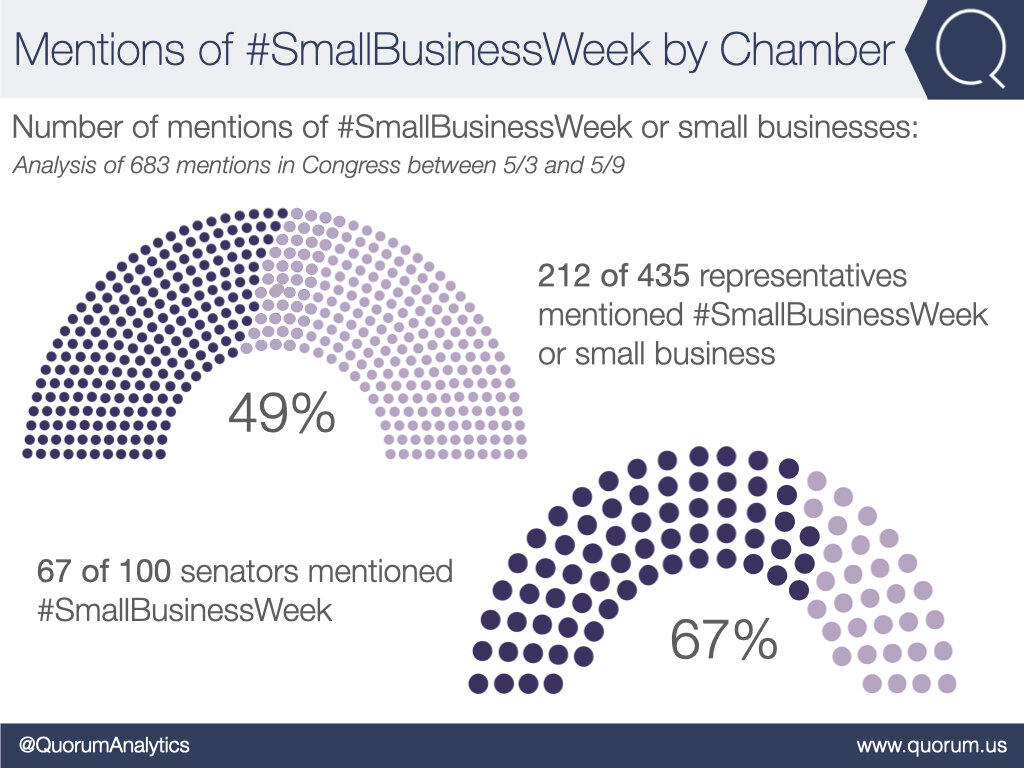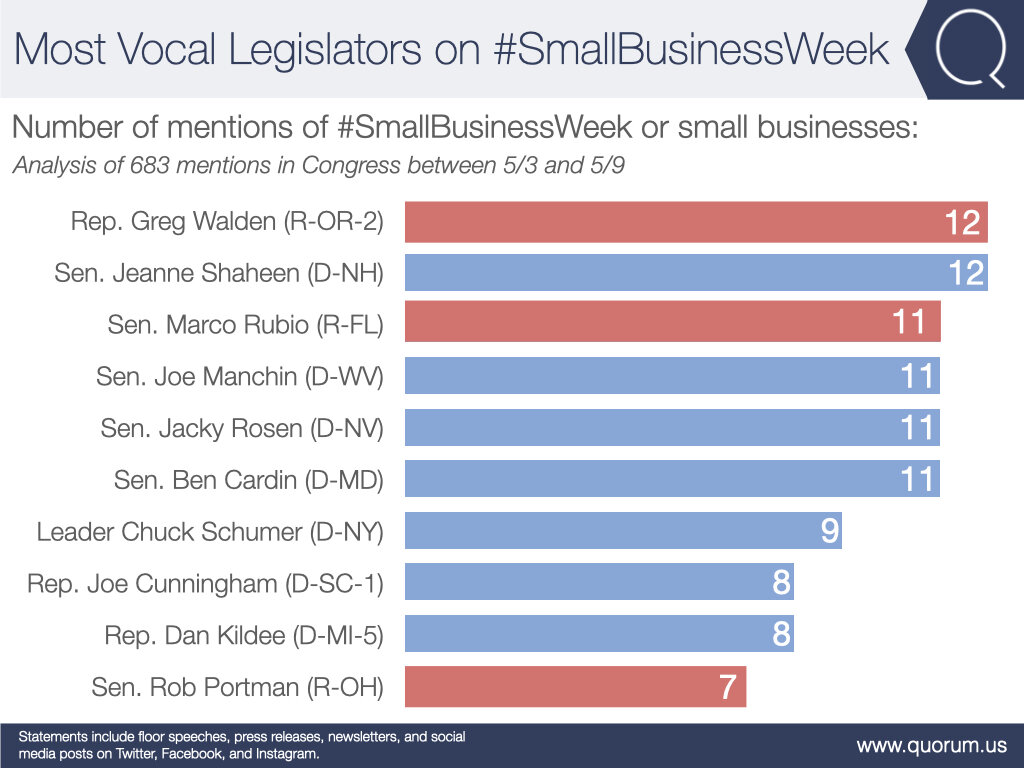Although the U.S. Small Business Administration officially postponed last week’s 57th annual National Small Business Week (NSBW), that didn’t stop policymakers, entrepreneurs, and founders from recognizing the importance of the nation’s 30.7 million startups and small businesses all across the country. With many businesses struggling right now as a result of the coronavirus pandemic, congressional leaders from across the political spectrum took the opportunity to voice their support for small business growth, innovation, and success.
Graphics and data provided by public affairs software platform Quorum.
An analysis by public affairs software platform Quorum found that House and Senate lawmakers shared a total of 683 statements mentioning #SmallBusinessWeek or "small businesses” from May 3rd to May 9th, the week originally set aside to celebrate the accomplishments of U.S. small businesses. The total included 67 senators and 212 members from both political parties who mentioned small businesses or shared #SmallBusinessWeek on social media or in press releases, floor speeches, and congressional newsletters.
221 representatives and 60 senators mentioned #SmallBusinessWeek or small business at least once.
From affirmations of support for Main Street businesses, to calling for startups and other small businesses to receive greater financial support in the midst of the COVID-19 pandemic, policymakers used the opportunity to highlight just how important it is to support our country’s economic drivers.
Rep. Rosa DeLauro (D-Conn.) highlighted the work of a small business in her district that is using its 3-D printing technology to produce face shields for first responders. Rep. Dwight Evans (D-Penn.), who noted on Twitter, “Usually, we'd be celebrating #SmallBusinessWeek right now,” shared a link to the SBA’s Paycheck Protection Program loan guidelines to help “make sure these vital pillars of our community are able to access the resources they need to survive this crisis.” And Sen. David Perdue (R-Ga.) said NSBW is “a reminder that we must continue to strengthen and support the #PaycheckProtectionProgram to ensure our small businesses & their employees have the resources to weather the #COVID19 pandemic.”
Sen. Lisa Murkowski (R-Alaska) was the most vocal senator, while Rep. Antonio Delgado (D-N.Y.) was the most vocal congressman.
Not all of the social media engagement, however, had to do directly with National Small Business Week. As small businesses and startups look beyond current relief options for additional financial assistance during this difficult time, many lawmakers also spent last week pushing for measures that would offer further support for struggling entrepreneurs. One particular area of concern was addressing gaps in current relief programs—such as PPP loans—and ensuring that startups and other small businesses can receive further assistance.
Rep. Steve Chabot (R-Ohio) commended the SBA’s efforts to support small businesses that are struggling right now, but also requested that the agency “focus additional efforts on underserved small businesses.” Sen. Jeanne Shaheen (D-N.H.), who was the most vocal member of the Senate when it came to small business advocacy during NSBW, spent time last week speaking with New Hampshire small business owners who have struggled to receive financial support. Sen. Shaheen followed up on her conversations in a letter to the Treasury Department and SBA that asked for officials to “immediately issue guidance regarding the parameters for forgiveness of loans under the PPP.”
While NSBW might have been upended by the coronavirus, policymakers still spent the week focusing on the important role that small businesses play in communities across the United States. With many lawmakers also highlighting the need to improve emergency relief options currently available to startups and small businesses, it’s our hope that their commitment to supporting entrepreneurs will continue long after the outbreak has passed. Perhaps Rep. John Curtis (R-Utah) summed it up best when he said that small businesses will not just survive the current economic downturn, but “will thrive in the post-coronavirus world.”
To learn more about entrepreneurial ecosystems and the policies that support startups across the country, check out Engine’s weekly #StartupsEverywhere series.





